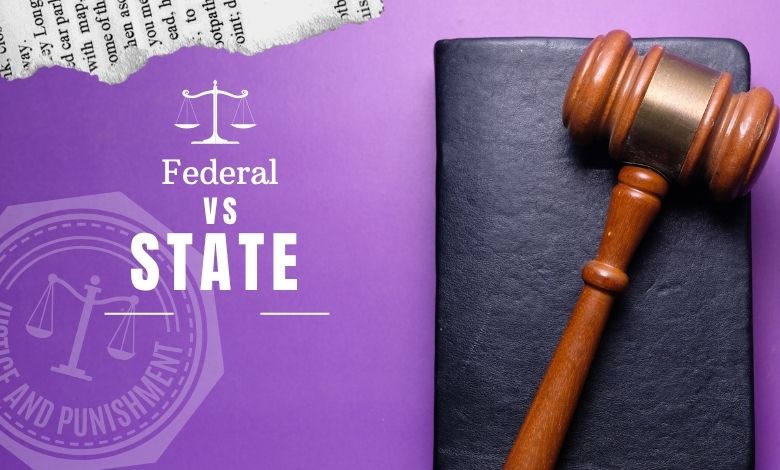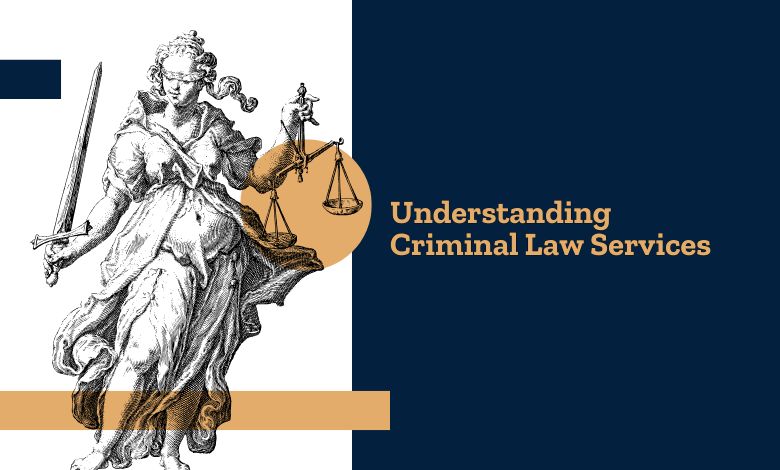Federal vs. State Charges: What Criminal Lawyers Can Do

Facing criminal charges in the United States is a serious matter—whether they are brought by a state government or the federal government. However, the legal process, penalties, and defense strategies can vary significantly depending on whether the charges are state or federal. For anyone navigating the criminal justice system, understanding the difference between federal and state charges—and how criminal lawyers approach each—can make all the difference in the outcome of a case.
Understanding the Jurisdictions
In the U.S., crimes can be prosecuted at either the state or federal level, depending on the nature and scope of the offense.
- State Charges are filed by state or local prosecutors for violations of state laws. These include most common offenses such as theft, assault, DUI, and drug possession.
- Federal Charges are brought by U.S. Attorneys on behalf of the federal government for crimes that violate federal laws or involve federal agencies, interstate activity, or national interests. Examples include drug trafficking across state lines, tax evasion, mail fraud, or offenses involving federal property.
The distinction is crucial because the legal procedures, resources, and potential penalties are often much more severe in federal cases.
Key Differences Between State and Federal Charges
1. Investigating Authorities
- State cases are typically investigated by local police or state agencies.
- Federal cases are investigated by federal agencies like the FBI, DEA, ATF, or IRS, often after lengthy and complex investigations.
2. Court Systems
- State charges are handled in state courts, which have varying rules depending on the jurisdiction.
- Federal charges are prosecuted in U.S. District Courts under a uniform set of federal rules.
3. Sentencing Guidelines
- State sentences can range from fines and probation to prison time, depending on state law.
- Federal sentences follow strict federal sentencing guidelines, which often result in longer prison terms with limited parole opportunities.
Given these differences, the role of a criminal defense attorney varies significantly depending on whether the charges are state or federal.
What Criminal Lawyers Do in State Cases
State-level criminal lawyers focus on navigating their state’s legal codes, court procedures, and local judicial norms. Their responsibilities typically include:
- Plea Negotiations: State prosecutors may be more flexible in negotiating plea deals, especially for non-violent or first-time offenses.
- Motion Practice: Attorneys file motions to dismiss charges, suppress evidence, or challenge police procedures.
- Trial Representation: Defense lawyers prepare witnesses, gather evidence, and present arguments to judges or juries.
- Alternative Sentencing: In some cases, attorneys can advocate for diversion programs, probation, or community service instead of jail.
A strong local criminal defense attorney will often have relationships with local prosecutors and judges, which can be advantageous in negotiating favorable outcomes.
What Criminal Lawyers Do in Federal Cases
Defending against federal charges is often more complex and demanding. Lawyers handling federal cases must be admitted to practice in federal court and have experience with federal procedures and agencies. Their roles may include:
- Handling Grand Jury Proceedings: Federal charges often involve grand juries that determine whether there is enough evidence to indict. An attorney can advise clients during this process or seek to influence the outcome.
- Challenging Federal Evidence: Lawyers may challenge the legality of federal wiretaps, surveillance, or search warrants used by federal agencies.
- Navigating Sentencing Guidelines: Federal criminal lawyers must understand how to negotiate within the U.S. Sentencing Guidelines or seek variances based on mitigating factors.
- Defending Complex White-Collar or Interstate Crimes: Many federal cases involve intricate financial records, digital evidence, or multi-state coordination, requiring advanced legal strategy and expert witnesses.
Federal defense requires more preparation, deeper legal knowledge, and the ability to manage extensive documentation and multiple federal agents or investigators.
Dual Sovereignty: Can You Be Charged Twice?
One unique aspect of the U.S. system is the dual sovereignty doctrine, which allows a person to be charged for the same act in both state and federal court. For example, someone involved in a drug trafficking ring could face state charges for drug possession and federal charges for interstate distribution. In such cases, criminal lawyers must coordinate a defense that considers both legal fronts, potentially involving collaboration with multiple attorneys.
Choosing the Right Criminal Defense Lawyer
If you’re facing state charges, look for an attorney with experience in your state’s courts and laws. If you’re facing federal charges, it’s essential to hire a lawyer who is specifically qualified and experienced in federal court proceedings. Some lawyers handle both, but always confirm their track record with similar cases.
Key qualities to look for:
- Courtroom experience (state or federal)
- Strong negotiation skills
- Understanding of the applicable law and procedure
- Clear communication and responsiveness
Final Thoughts
Whether you’re charged at the state or federal level, criminal charges can have serious and lasting consequences. The distinction between federal and state cases is more than just procedural—it shapes every aspect of how your case is handled and how your lawyer will defend you.
By hiring an experienced and capable criminal defense attorney, you gain an advocate who understands the rules of the court you’re in—and who can fight to protect your rights and your future.



